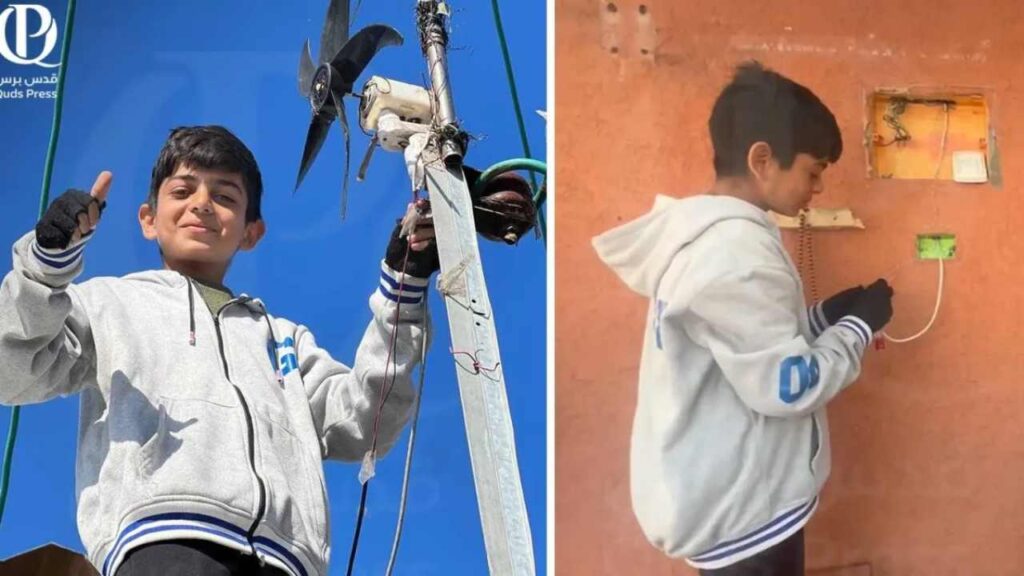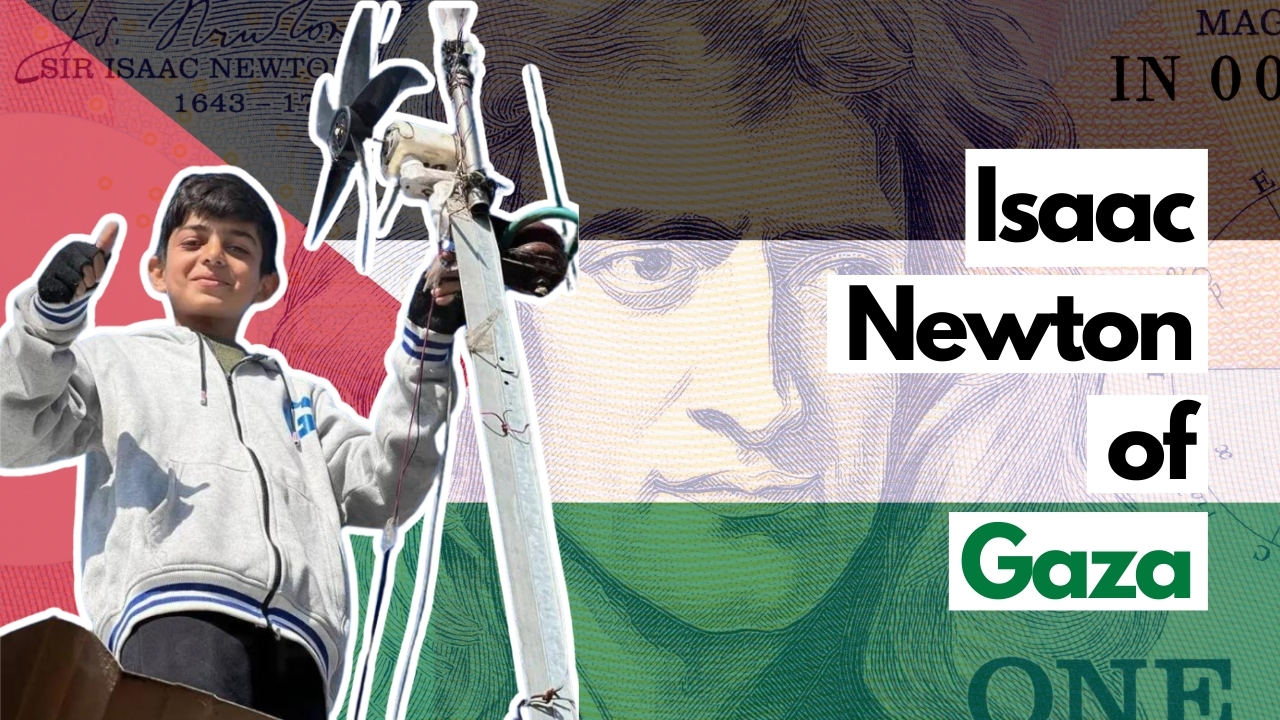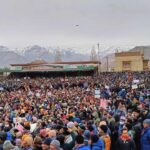Amid conflict and despair, stories of resilience and innovation emerge, often from the most unexpected places. One such story revolves around Hussam Al-Attar, a 15-year-old Palestinian teenager from Gaza who has earned the moniker “the Newton of Gaza” for his remarkable achievement in generating electricity from wind using basic tools.
The Journey of Hussam Al-Attar
Hussam’s journey towards becoming a symbol of innovation began amidst the chaos and devastation inflicted by the conflict in Gaza. Displaced from his home in the Beit Lahia area due to the war, Hussam, along with his family, found refuge in Rafah, near the Egyptian border. It was during this time of hardship that Hussam’s determination to bring light into the lives of his family and community ignited.

“When we rotate the dynamo, it produces electricity. So, I put one on the roof. Then I bought a blade can. I put them on top of each other until they started producing electricity. During the day or night, whenever there is wind, there is electricity. And I wish that we have batteries so that I could store the electricity and we could have it 24/7.”
Narrating the story about how he got this idea, he said,” My brother has two baby twins, and at night, when they wake up, the room is dark. Now they see light and are not scared, thus going back to sleep.” These fans, though modest in their output, provided much-needed warmth and comfort to the inhabitants of the tents, offering a glimpse of hope amidst the darkness of their circumstances.
Hussam’s mother, reflecting on her son’s remarkable achievement, speaks of his innate talent and passion. She recounts how Hussam’s ingenuity not only benefited their family but also extended to the community, where he was sought after to repair electrical tools. With pride in her voice, she envisions a future where Hussam’s inventions serve not only his community but also the Palestinian cause, embodying the resilience of a generation determined to thrive despite adversity.

Conflict and Innovation: Light in the Dark
Hussam’s story takes place in Gaza, where there’s a long-standing fight between Israelis and Palestinians. This conflict has caused a lot of damage, making people lose their homes and even their lives. Today, a UN aid agency, UNRWA, shared a video showing how one of their health clinics in northern Gaza got destroyed along with many other buildings. “There is nothing left,” says the agency.
“The sound of the plane at night is very disturbing. I’m afraid of what will happen. I’m afraid of the sound of the plane at night. There are a lot of innovative people in the Gaza Strip. But we weren’t able to implement it during the war.” Hassan expresses his longing for a life free from the misery of war and conflict. He calls upon the world and Arab countries to heed his plea for an end to the violence that has plagued his homeland for far too long. His plea serves as a poignant reminder of the urgent need for peace and solidarity in a region marred by decades of strife and suffering.
Despite the relentless aggression and hardship, Hussam’s story symbolises the spirit of resilience that defines the Palestinian people. As the “Newton of Gaza,” Hussam’s legacy serves as a light in the darkness, reminding us of all the boundless potential for positive change, even in the most challenging of circumstances.









